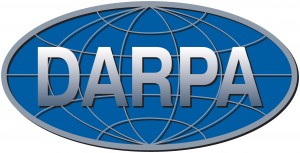 Mark Poznansky, MD, PhD, turns on the computer in his office within the MGH’s Vaccine Immunotherapy Center (VIC) at the Charlestown Navy Yard. Within moments, his team is connected via international teleconferencing to four other academic and biotech company laboratories across the globe, including scientists in Germany and Denmark, a biochemist in Seattle and an immunologist in Rhode Island.
Mark Poznansky, MD, PhD, turns on the computer in his office within the MGH’s Vaccine Immunotherapy Center (VIC) at the Charlestown Navy Yard. Within moments, his team is connected via international teleconferencing to four other academic and biotech company laboratories across the globe, including scientists in Germany and Denmark, a biochemist in Seattle and an immunologist in Rhode Island.
Together, they plan to change the future of vaccine research.
Poznansky, VIC’s founder and director, says the newly formed consortium, called VaxCelerate, is one of a few recently approved DARPA (Defense Advanced Research Projects Agency) contracts in the United States. The group’s goal is to bring industry and academia leaders together to accelerate vaccine and immunotherapy development. The initial proof of principle work focuses on HIV-1 as its target. However, the consortium could equally apply its intellectual and technical advantage to addressing any other pathogen.
Funding for the program was announced on April 20th. “It’s the way of the future,” Poznansky says. “This is a fascinating opportunity to bring key players together as part of the new wave of research where work that spans from the genome of the pathogen to definitive preclinical testing of a new vaccine in human and animal systems is being done by combining the expertise of all involved. We each bring our own specialty to the group, but we are integrated right from the beginning. This differs from traditional research where groups worked independently and then if they did hand information over to others – there was a disconnect and it could become quite time consuming, complicated and costly for them to move forward together. I consider our consortium to be nimble and capable of applying itself to any pathogen at short notice”
This program is fast-moving, Poznansky says, with aggressive timelines to bring their goal to fruition. A prime example of what the group hopes to address is a situation such as the H1N1 flu pandemic in 2009. “We want to be able to respond more quickly to emerging infectious diseases like H1N1, where we saw it take almost two years to create a useful vaccine,” Poznansky says. “Under this type of partnership, it would take months rather than years.”
Poznansky, who hand-picked the consortium members with senior experts from vaccine development advising VIC, credits them with being the best in their respective fields: Evaxion Biotech, which works to identify and develop novel vaccine candidates based on pathogen genomes; biochemist David Baker, PhD, and his team within The Baker Laboratory at the University of Washington in Seattle that designs synthetic proteins that can serve as vaccines; Rhode Island-based immunology company EpiVax, Inc., led by Annie De Groot, MD that uses high-throughput informatics to predicts vaccine components directly from genomic sequences and provides definitive testing of new vaccines in human-like animal models; and ProBioGen, a German-based company specializing in artificial lymph nodes which allow testing of new vaccines in human systems before introduction into patients. Another pivotal person in the consortium’s successful formation was Frances Toneguzzo, PhD executive director of Partners HealthCare Research Ventures and Licensing, and her colleague Rekha Paleyanda PhD, who worked with all parties to create all essential consortium agreements. The project has been guided in its formation by Dr. Jeff Gelfand, and Tim Brauns, MBA, senior scientific and strategic advisors to VIC.
“We are just in the beginning stages now that the program has been approved,” Poznansky says. “We hope it will represent a new way forward for making better vaccines, faster. It’s exciting to have such a great collaboration.”
For more information on VIC’s projects, visit https://advancingcures.org/.
